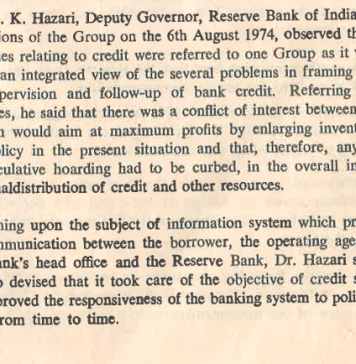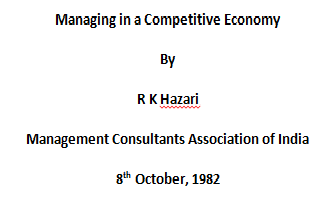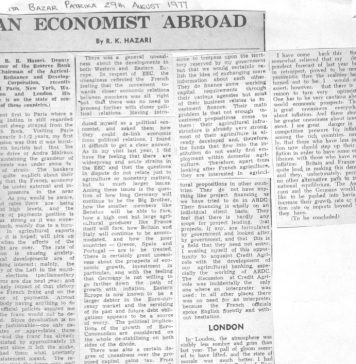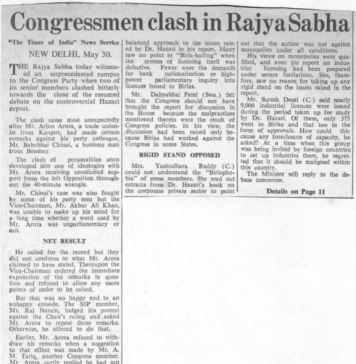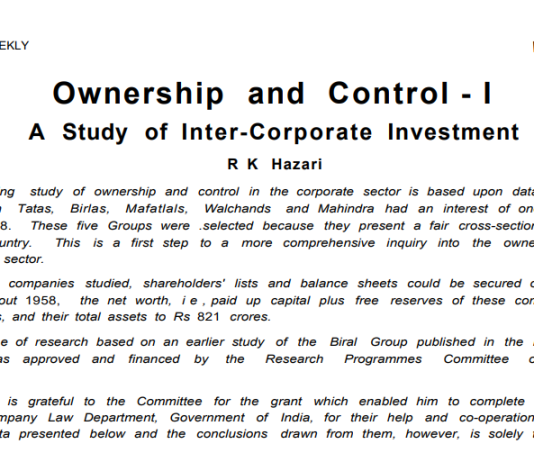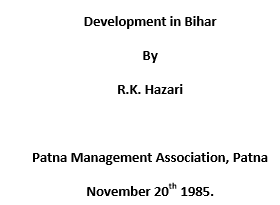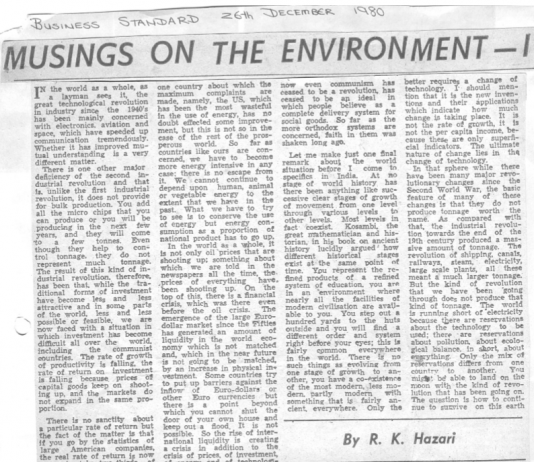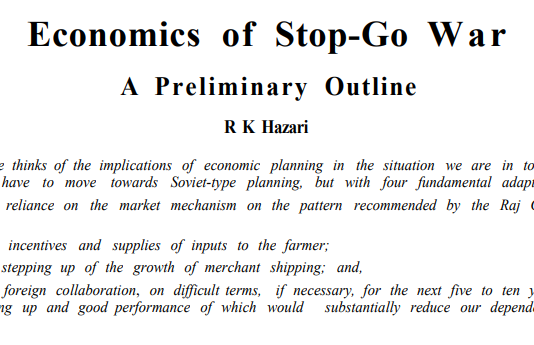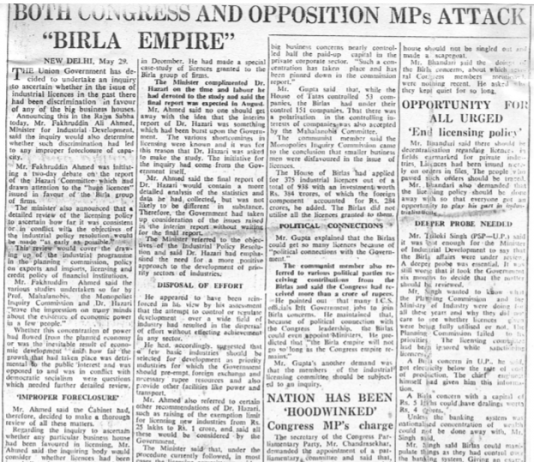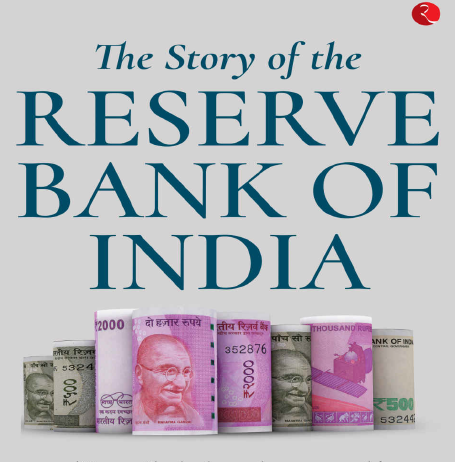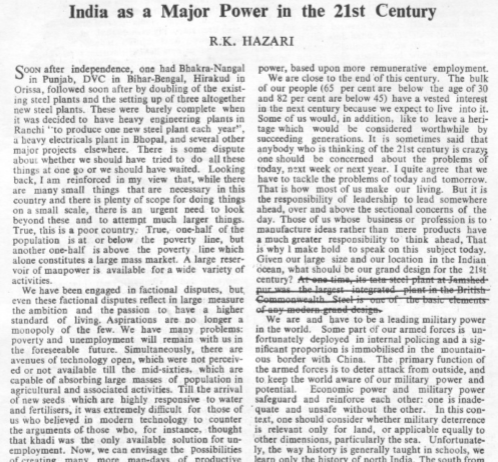3-part series published in The Economic Weekly in the issues dated November 26, December 3, December 10, 1960 and a supplementary note in the...
Edited transcript of a Talk at the Patna Management Association, Patna
Mr. President, Gentlemen
I welcome the opportunity that you
have provided to visit Patna after nearly...
In the world as a whole, as a
layman sees it, the great technological revolution in industry since the 1940's
has been mainly concerned with electronics,...
The more one thinks of the implications of economic planning in the situation we are in today, the clearer it becomes that we have...
Edited transcript of a talk given to The Management Consultants Association of India, 8th October, 1982
BUSINESS STRATEGY
The country is passing through a very...
Talk delivered by Dr Hazari to the executives of the Tata Iron and Steel at Jamshedpur around 1985
Soon after independence, one had Bhakra-Nangal in...

